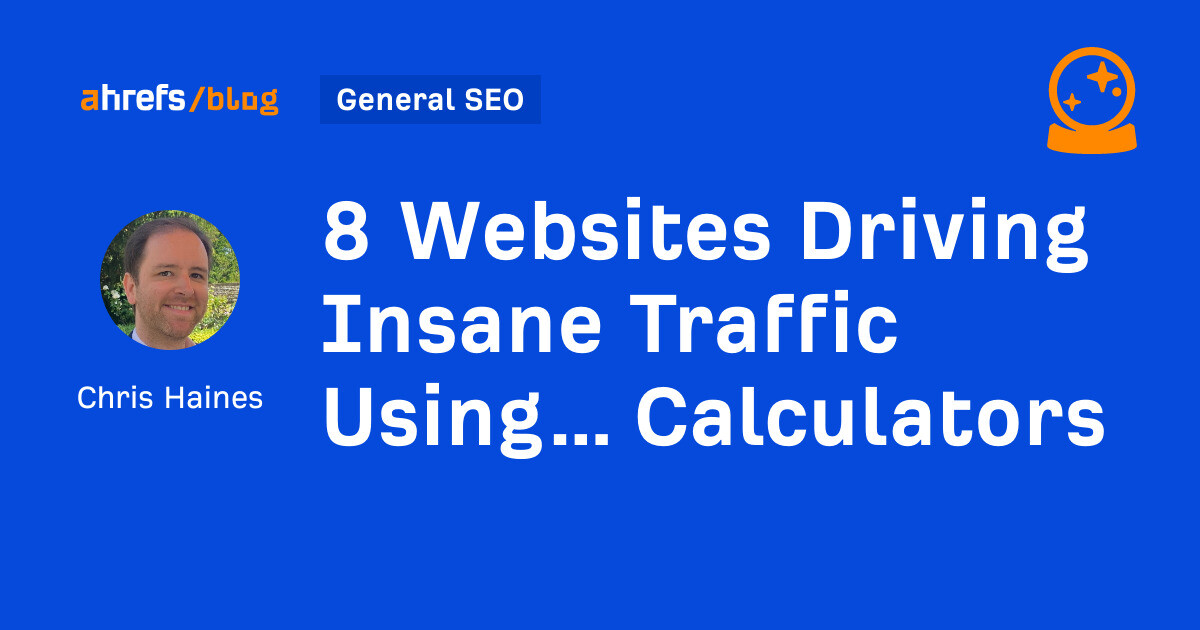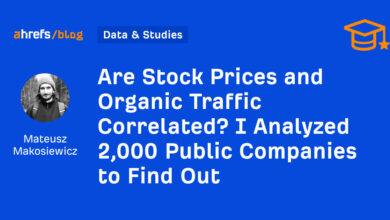8 Websites Generating Massive Traffic with the Help of Calculators

One of the calculators on Nerdwallet that caught my eye was their compound interest calculator. This calculator helps users understand how their money can grow over time with compound interest.
Compound interest is a powerful tool in personal finance, and this calculator simplifies the process of understanding how it works.
The calculator page receives 289k organic traffic and has an estimated value of $19.3k. While it may not drive as much traffic as some of the other calculators mentioned in this article, it still provides significant value to users seeking financial information.
Looking at the /calculator/ parent subfolder, we can see that Nerdwallet has 14 pages dedicated to calculators, with a total traffic of 1.1m. This shows that they have multiple calculators driving traffic to their site.
Overall, calculators are a valuable tool for website owners looking to drive traffic to their site. By providing useful and interactive calculators that solve specific problems for users, websites can attract a large audience and increase their organic traffic.
If you are considering adding a calculator to your site, be sure to research popular topics in your niche and create a calculator that provides real value to your audience. By following the examples of successful websites mentioned in this article, you can create a calculator that drives significant traffic to your site and increases user engagement.
Remember, the key to success with calculators is to provide accurate and helpful information that users can easily access and understand. By doing so, you can leverage the power of calculators to drive traffic and grow your online presence.
Calculators have become a popular tactic for savvy website owners looking to drive traffic to their websites. By creating interactive tools that solve specific problems for users, websites can attract a large audience and increase their organic traffic.
One example of a successful calculator is the systematic investment plan (SIP) calculator on groww.in. This calculator enables users to understand the return on their mutual fund investments. With 3.5 million organic traffic and an estimated value of $128k, this calculator has proven to be a valuable asset for the website.
Another successful calculator is the mortgage calculator on bankrate.com, which helps users determine how much they can afford to pay back per month on a new house. With 1.4 million organic traffic and an estimated value of $1m, this calculator is a popular tool for users in the finance niche.
Percentagecalculator.net is another example of a successful calculator, with 1.6 million organic traffic and an estimated value of $44.9k. This calculator allows users to complete basic percentage calculations like percentage increases and decreases.
Mayoclinic.org’s calorie calculator is a popular tool for users looking to track their calorie intake. With 456k organic traffic and an estimated value of $106k, this calculator has proven to be a valuable resource for health-conscious individuals.
Americanpregnancy.org’s pregnancy calculator helps users determine their due date based on their last menstrual period. With 427k organic traffic and an estimated value of $60.4k, this calculator is a popular tool for expectant mothers.
Webmd.com’s ovulation calculator helps users determine the most fertile days of the month for conception. With 373k organic traffic and an estimated value of $72.1k, this calculator is a valuable resource for individuals trying to conceive.
Smartasset.com’s paycheck calculator helps users determine how much of their salary goes towards taxes. With 690k organic traffic and an estimated value of $1.1m, this calculator is a popular tool for individuals looking to better understand their finances.
Nerdwallet.com’s compound interest calculator helps users understand how their money can grow over time with compound interest. With 289k organic traffic and an estimated value of $19.3k, this calculator is a valuable resource for individuals seeking financial information.
In conclusion, calculators are a powerful tool for website owners looking to drive traffic to their sites. By providing useful and interactive calculators that solve specific problems for users, websites can attract a large audience and increase their organic traffic. By following the examples of successful websites mentioned in this article, website owners can create calculators that drive significant traffic and increase user engagement. Building a calculator on your website may not be the first idea that comes to mind when looking to increase traffic. However, after analyzing the success of websites like Nerdwallet, it’s clear that calculators can drive a significant amount of organic traffic. By utilizing tools like Ahrefs, website owners can identify popular calculator pages and develop their own to attract more visitors.
Nerdwallet’s compound interest calculator, for example, drives a significant portion of their overall traffic and is just one of many calculators on their site. This suggests that their calculators are part of a deliberate SEO strategy aimed at attracting users interested in financial planning tools. By using tools like Web Explorer and Batch Analysis 2.0, website owners can identify popular calculator pages and replicate their success.
To find ideas for creating your own calculator, you can use Keywords Explorer to search for terms related to calculators. By exploring the Clusters by Parent Topic, you can discover popular calculator topics that people are searching for. With thousands of clusters to choose from, you can find a keyword that aligns with your website’s niche and audience.
Building your own calculator has never been easier thanks to tools like AI coding platforms and LLMs. These tools can help you create custom calculators in a matter of seconds, eliminating the need for technical expertise or hiring a developer. While it may take some time to integrate the calculator into your website, the potential for increased organic traffic makes it a worthwhile investment.
In conclusion, incorporating calculators into your website can be a valuable strategy for driving organic traffic and engaging users. While calculators may not replace traditional blog content, they can complement existing content and attract users interested in interactive tools. By following the example set by successful websites like Nerdwallet and utilizing tools like Ahrefs, website owners can tap into the potential of calculators to boost their online presence.
FAQs:
1. Are calculators a viable strategy for increasing website traffic?
Yes, calculators can drive organic traffic by attracting users interested in interactive tools and providing valuable resources.
2. How can I find popular calculator ideas for my website?
You can use tools like Keywords Explorer to search for relevant terms and explore clusters to discover popular calculator topics.
3. Is building a calculator difficult?
Building a calculator has become easier with the help of AI coding tools and LLMs, eliminating the need for technical expertise or hiring a developer.
4. Can calculators replace blog content?
While calculators may not replace traditional blog content, they can complement existing content and attract a different audience segment.
5. How can I optimize my calculator for SEO?
To optimize your calculator for SEO, focus on targeting relevant keywords, optimizing meta tags, and ensuring a user-friendly design for easy navigation. the topic of the impact of social media on mental health
Social media has become an integral part of our daily lives, with millions of people around the world using platforms like Facebook, Instagram, Twitter, and Snapchat to connect with friends, family, and even strangers. While social media has many benefits, such as allowing us to stay in touch with loved ones and access news and information quickly, it also has a dark side that can negatively impact our mental health.
One of the biggest ways that social media can affect mental health is through comparison. With the rise of influencers and celebrities on platforms like Instagram, many people find themselves comparing their own lives to the seemingly perfect lives of others. This can lead to feelings of inadequacy, low self-esteem, and even depression. Studies have shown that spending too much time on social media can also increase feelings of loneliness and isolation, as people may feel disconnected from their real-life relationships.
Another way that social media can impact mental health is through cyberbullying. With the anonymity that social media provides, it is easier for people to engage in hurtful behavior online. Cyberbullying can have serious consequences, leading to feelings of shame, embarrassment, and even thoughts of self-harm. In extreme cases, cyberbullying has been linked to suicides among young people.
Furthermore, the constant exposure to curated and filtered images on social media can distort our perception of reality. Many people only post the highlights of their lives, creating a false sense of perfection. This can lead to feelings of insecurity and inadequacy, as we compare our own messy, imperfect lives to the carefully crafted images we see online.
On the flip side, social media can also be a source of support and connection for those struggling with mental health issues. Online communities and support groups provide a safe space for people to share their experiences, seek advice, and find comfort in knowing that they are not alone. However, it is important to be cautious about the information and advice obtained online, as not all sources may be reliable or accurate.
To protect our mental health while using social media, it is important to set boundaries and practice self-care. Limiting our time on social media, unfollowing accounts that make us feel inadequate, and engaging in activities that promote mental well-being can help mitigate the negative effects of social media. It is also important to remember that what we see online is often a curated version of reality, and not a true reflection of someone’s life.
In conclusion, social media can have both positive and negative impacts on mental health. While it can be a source of support and connection, it can also lead to feelings of comparison, loneliness, and inadequacy. By being mindful of our social media usage and taking steps to protect our mental health, we can navigate the digital world in a healthy and balanced way.




